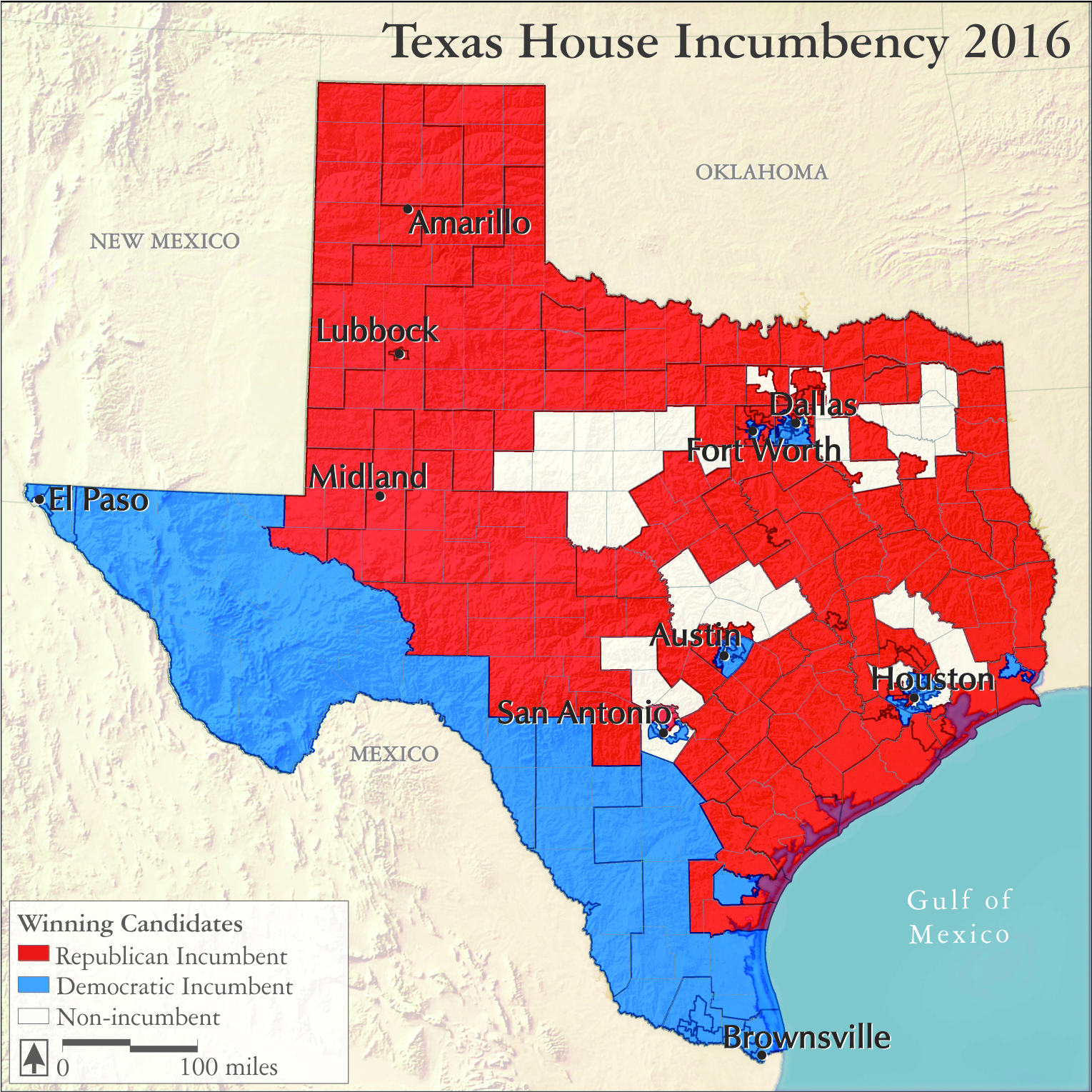
Adopting conservation policies can require accepting new, challenging, controversial ideas. But, changing our minds is hard. There is great strength in the status quo. The power of incumbency in our political system provides an example.
For instance, during the 2016 Texas State House races, 150 seats were up for grabs. 124 of those, or 83%, went to incumbents (please see this party-blind map).
And these wins were easy. The average margin of victory was immense: a 37% edge for all opposed races, 71% if both opposed and unopposed races were taken into account. Fully 81 positions, or 54%, went to a victor who was unopposed.
Incumbents wield great power in both parties. 83% of Republican winners in the 2016 Texas state House races were incumbents; while 82% of Democrats who won were incumbents. Incumbency was a winner on both sides of the aisle.
Supporting incumbents can be seen as a deserving reward to experience and seniority, or just a nod to familiarity and name recognition. Or it may be a sign of the ease of fundraising for representatives with networks of donors carefully built up over many years. For example, Texas House incumbents raised 4.5 times what their 2016 challengers managed to collect.
As one can see in this map, incumbent power can create highly defensible partisan silos, whether they be Democratic or Republican. These well-protected seats can make listening to voters, or to rival politicians, nearly unnecessary, and make compromise on conservation, or other controversial topics, easy to avoid.
Source:
National Institute on Money in Politics. 2019. Election Overview. https://www.followthemoney.org/tools/election-overview?s=TX&y=2016# (Accessed February 5, 2019).
Office of the Secretary of State. 2016. Race Summary Report: 2016 General Election, 11/8/2016. https://elections.sos.state.tx.us/elchist319_state.htm (Accessed February 5, 2019).
